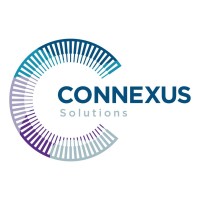Another Perspective on the Road to Self-Licensing
We’re lifting the lid on what it takes to obtain and run your own AFSL. In this article, we invited our friends at Kit Legal to share their view on what an advice firm should consider before making the move.
- A
- A
- A

As we continue to dispel the myths around advice practices choosing the path to have their own AFSL, I recently had the opportunity to meet with Lindsay Garnock of Boyce Financial Services (BFS). I posed some questions to Lindsay around the drivers for BFS getting their own AFSL and some of the decision making involved.
M: How long have you had your own AFSL now Lindsay?
L: It’s roughly 12 months now since we got our license.
M: What was your decision-making process for taking the path to self-licensing and who was involved in that decision-making process in the business?
L: We started our due diligence by looking at our relationship with our previous licensee and we asked the questions - do we continue as we are, or do we get self-licensed? And it probably wasn't until about 2018 that we started thinking that self-licensing was going to be a more viable option, to take our business in the direction that we wanted to go. The support industry for own AFSLs has come a long way over the past decade with great solutions available to help run the AFSL. To make it easy. This was one of the key factors that helped us decide on this path. For us the AFSL is not about making money but being able to operate our Financial Planning business the way we want.
In consultation with you Murray, I did a very long presentation that covered a cost-benefit analysis and due diligence proposal to the other unitholders. It was successful and the unitholders approved self licensing in November 2019. And then basically as we lodged our AFSL application in March 2020, COVID hit and everything went into lockdown. So we had a rather drawn-out process to get there, but we eventually got it. So it took us almost six months to get the license. This fortunately gave us time to line everything up and do what we needed to do.
M: Were there any objections that came up with the other unit holders when you were going through the decision-making process? And were there any specific reasons that made you choose to go down this path?
L: I think, fundamentally, it’s probably two things.
Under our previous licensee, the environment had changed from predominantly peers who were business owners, making their own decisions, to being part of a large institutionally owned dealer group. There were significant changes at the licensee level that changed the direction of how they were approaching advice delivery. They had a lot more authorised reps to look after and obviously, they needed to protect their own license. But unfortunately, that left us feeling like it wasn't why we joined them and that we’d probably outgrown the relationship.
And then on top of that, we now wanted to rebuild our systems and create a more efficient business. We needed more control to implement the changes we wanted to make so that we could deliver value to our clients that were relevant to them, which is bespoke individually tailored portfolios.
There was absolutely no financial incentive whatsoever for us to go and get self-licensed. It was purely about business control and autonomy. We wanted to get back to being in amongst a community of like-minded individuals that are facing the same problems, this is exactly why we joined Connexus.
M: So what do you see are the main benefits of having your own license?
L: The main benefits are, at the end of the day, our Board is making decisions around what we believe is what’s best for our clients and best for the business. We've got some very strict policies and procedures around investments and governance that we use, we still have an investment committee, and regular management meetings which is vital to having an AFSL. We commenced using a research consultant being Lonsec. Not much has really changed fundamentally from what we did before, it's just that we have more flexibility now. If we don't want to use XPLAN purely as a compliance tool and we want to use it for other things, we can find another provider and use it for that.
M: If someone else is considering getting their own AFSL, what are the challenges you would highlight with them?
L: I think it's really important to have some sort of dedicated resource, not necessarily full time, but a practice manager or practice support person to help with the AFSL management and administration. So you’re not taking a top-level adviser away from driving revenue and running a business. We did eventually employ a person, but we were probably six months late to the party. We hit the first of October self-licensed, with everybody at full capacity. We had no spare capacity. And that was a big error.
M: Now you’ve got your license and you're looking for a licensee partner. Maybe even a community. What are the things that you considered when you were looking to partner up with someone?
L: We weren’t keen on going to a large institution. We wanted to be culturally aligned to the organisation we chose and we also didn’t want that business to be focused on growing their practices & advisers just for the sake of growth. That got rid of a lot of the competition and then Connexus came along. They were exactly what we were looking for.
I feel like Connexus is what it used to be back 30 years ago when everyone was effectively self-licensed because dealer groups didn’t exist. So people got together as a form of a ‘co-op’ if you like to try and get some buying power, except now we’ve also got a very strong professional regulatory overlay, which is taking the industry in the right direction.
We've got a legal team that does our compliance and AFSL audits and Connexus was a big part of helping us with that. They help keep us safe and provide the guidance necessary to keep us on the right track. Murray and Mark work out who are the best providers are out there and then say, “right, here are some choices, business owners”. You don't need to use any of them, there's nothing in it for them. So the ability to pick and choose what you want is great.
M: How have you found it since joining Connexus?
L: We’re looking forward to the journey and spending time with the people who have joined the business. I think it's important that they stick to good businesses and good people. It's not just growth for growth's sake, get the right culture and everyone's aligned. We all want to do the right thing for our clients and we're all going to do the right thing by the regulator, so we don't want people in the group spending all their time complaining about the operational stuff.
M: If someone wasn’t using licensee support services like Connexus, what would you say to them?
L: I would say if you’re a dedicated adviser, a business owner, view yourself as a professional and looking for a community that has yours, your client’s and the industry's best interests at heart, Connexus is probably the sort of place you should go. There are no hidden agendas. It's clear, it's transparent. This is what we're here for. My favourite saying relating to this is ‘we are here by choice’.
M: Thanks for your time Lindsay.
Head to our website to learn more about Connexus Solutions.
Subscribe to 
Never miss the stories that impact the industry.






